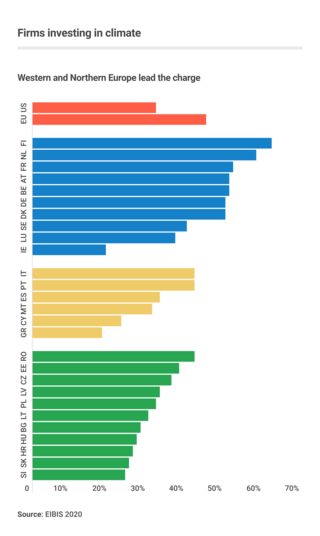Standard Oil Company, Inc., was an American oil production, transportation, refining, and marketing company that operated from 1870 to 1911. At its height, Standard Oil was the largest petroleum company in the world, and its success made its co-founder and chairman, John D. Rockefeller, among the wealthiest Americans of all time and among the richest people in modern history. Its history as one of the world's first and largest multinational corporations ended in 1911, when the U.S. Supreme Court ruled that it was an illegal monopoly.

Lee Roy Raymond is an American businessman and was the chief executive officer (CEO) and chairman of ExxonMobil from 1999 to 2005. He had previously been the CEO of Exxon since 1993. He joined the company in 1963 and served as president from 1987 and a director beginning in 1984.

Esso is a trading name for ExxonMobil. Originally, the name was primarily used by its predecessor Standard Oil of New Jersey after the breakup of the original Standard Oil company in 1911. The company adopted the name "Esso", to which the other Standard Oil companies would later object.

Business action on climate change includes a range of activities relating to climate change, and to influencing political decisions on climate change-related regulation, such as the Kyoto Protocol. Major multinationals have played and to some extent continue to play a significant role in the politics of climate change, especially in the United States, through lobbying of government and funding of climate change deniers. Business also plays a key role in the mitigation of climate change, through decisions to invest in researching and implementing new energy technologies and energy efficiency measures.

Abby Joseph Cohen is an American economist and financial analyst on Wall Street. She is a professor of business at Columbia Business School. In 2001 she was named one of the 30 most powerful women in America by Ladies Home Journal, and she has been named as Barron's 100 most influential women in finance every year since the list's inception. She worked at Goldman Sachs for many years, working as the firm's Chief Investment Strategist prior to March 2007 and then leader of its Global Markets Institute, before retiring from this role in 2017.

Rex Wayne Tillerson is an American energy executive who served as the 69th United States secretary of state from 2017 to 2018 in the administration of Donald Trump. From 2006 to 2016, he was chairman and chief executive officer (CEO) of ExxonMobil.

Robert Pollin is an American economist and professor at the University of Massachusetts Amherst, where he is also founding co-director of its Political Economy Research Institute (PERI).
The National Black Chamber of Commerce (NBCC) was incorporated as The National Black Chamber of Commerce, Inc., in 1993. It is a nonprofit, nonpartisan, nonsectarian organization dedicated to the economic empowerment of African American communities. Additionally, the organization indicates that it represents the views of its members regarding economic and political policy issues; domestically and internationally. It is organized as a 501(c) corporation and has at least 190 chapters within the United States. The NBCC also has international chapters in the Bahamas, Brazil, Colombia, Ghana and Jamaica. As with all Chambers of Commerce, affiliate branches are committed to carrying out the goals of the main Chamber within their areas.

XTO Energy Inc. is an American energy company and subsidiary of ExxonMobil principally operating in North America. Acquired by ExxonMobil in 2010 and based out of Spring, Texas, it is involved with the production, processing, transportation, and development of oil and natural gas resources. The company specializes in developing shale gas via unconventional means like hydraulic fracturing and horizontal drilling.

ExxonMobil Corporation is an American multinational oil and gas corporation and the largest direct descendant of John D. Rockefeller's Standard Oil. The company, which took its present name in 1999 per the merger of Exxon and Mobil, is vertically integrated across the entire oil and gas industry, and within it is also a chemicals division which produces plastic, synthetic rubber, and other chemical products. ExxonMobil is headquartered near the Houston suburb of Spring, Texas, though officially incorporated in the U.S. state of New Jersey.
Pioneer Natural Resources Company, headquartered in Irving, Texas, is engaged in hydrocarbon exploration. It operates in the Cline Shale, which is part of the Spraberry Trend of the Permian Basin, where the company is the largest acreage holder. Pioneer is presently undergoing an acquisition by ExxonMobil, which in October 2023 agreed to acquire the company in the largest merger in the energy industry in 20 years; closing is expected in the first half of 2024.

Vasiliki "Vicky" Pryce is a Greek-born British economist and a former Joint Head of the United Kingdom's Government Economic Service.
Walter Vincent Shipley II was the chairman and chief executive officer of Chase Manhattan Bank and, previous to that, the company with which it merged Chemical Bank. Shipley was named chief executive of Chemical in 1981 and held the position through 1999 and remained at the bank as chairman through January 2000, just prior to the bank's merger with J.P. Morgan & Co. During his 18-year tenure, Shipley oversaw Chemical's mergers with Texas Commerce Bank in 1987, Manufacturers Hanover in 1991 and Chase Manhattan Bank in 1996.
Hazel Kyrk (1886–1957) was an American economist and pioneer of consumer economics.
Selma Evelyn Fine Goldsmith (1912–1962) was an American economic statistician who accurately estimated the personal income distribution of Americans.
Alexander Karsner is an American technology entrepreneur, venture capitalist, and energy and environmental policymaker.
Rachel Toni Algaze Croson is an economist currently serving as Executive Vice President and Provost of the University of Minnesota, and McKnight Endowed Professor of Economics. Until March 2020, she served as Dean of the College of Social Science and MSU Foundation Professor of Economics at Michigan State University. She earned her bachelor's degree in economics and the philosophy of science from the University of Pennsylvania and her master's and Ph.D. in economics from Harvard University.
Ann Fetter Friedlaender (1938–1992) was a noted American economist. Friedlaender held appointments in two MIT departments as Professor of Civil Engineering and Economics for the class of 1941. Dr Friedlaender was seen as an authority in the field of public finance, with a speciality in transportation studies. The first woman to head one of MIT's five schools, she served as Dean of the School of Humanities and Social Science from 1984 to 1990.
Ellen Hughes-Cromwick is an American economic advisor serving as a senior economist at the University of Michigan Energy Institute. She previously served as the chief economist for Ford Motor Company for over 18 years, and oversaw the company through the 2008 financial crisis. Hughes-Cromwick has been involved with the National Association for Business Economics for over a decade, and served as the association's president from 2007 to 2008.
ExxonMobil, an American multinational oil and gas corporation presently based out of Texas, has had one of the longest histories of any company in its industry. A direct descendant of John D. Rockefeller's Standard Oil, the company traces its roots as far back as 1886 to the founding of the Vacuum Oil Company, which would become part of ExxonMobil through its own merger with Mobil during the 1930s. The present name of the company comes from a 1999 merger of Standard Oil's New Jersey and New York successors, which adopted the names Exxon and Mobil respectively throughout the middle of the 20th century. Because of Standard Oil of New Jersey's ownership over all Standard Oil assets at the time of the 1911 breakup, ExxonMobil is seen by some as the definitive continuation of Standard Oil today.









